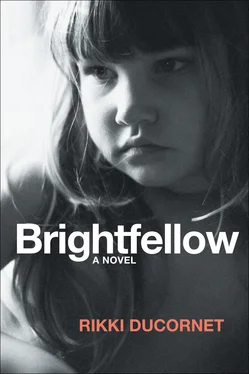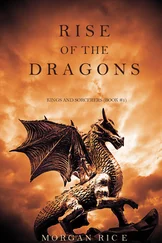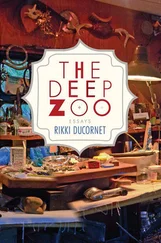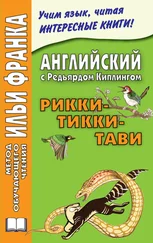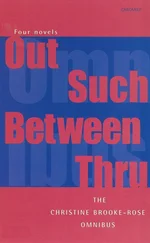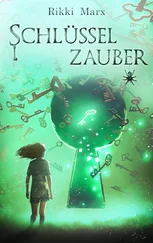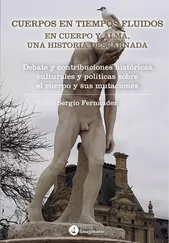“They say. . they say we each have a bird within us. A bird of breath, a bird of fire. Longing for. . release.” Billy grows quiet all at once and his gaze clouds over.
“Longing,” Billy says. “Yes. For release. Yes. Yes! That’s it, isn’t it! What we all—”
“I never told you what Mannja Fnadr means,” Charter continues. “It means the first ones here. And they may well be. The first ones to come; the first ones with sinew in the soul.”
“Such a notion, Charter: sinew in the soul. Why that’s downright wonderful!”
“It also means: first sprouting or, if I understand correctly, first budding of the initial impulse. ”
“My god! My god!” Billy rises, agitated, and begins to pace. Earnestly he says: “I sometimes wonder, cannot help but wonder, what if we — yes our entire species — are the first budding, the first and only, Charter! And what if we’ve. . missed the boat ?”
The early evening has moved closer to the night. In this way, eating and speaking together, they live the hours. In a brief week’s time, on such a night as this, Billy will ask Charter: “Tell me something of your father’s death. You carry it awfully close to your heart, I can tell. You said your mother had gone far too soon, but peacefully, but what of your father?”
Charter will not see this coming and he will be knocked off balance. What had happened to his father had been terrible. Charter could not tell Billy how he had run away, been homeless, a scavenger, living under porches, in cabinets stocked with dead mammals floating in formaldehyde — all that. How he had returned one day to find his father on the floor, how his father had been dead well over a week, how he had built a good fire in the middle of the house, how that fire had brought it all down, everything down to ashes. Instead he will say: “A long illness. A long and terrible illness.” Which in its way was true.
It is late. Outside, Dr. Ash is wandering in her yard. “It’s all wrapped up!” she shouts, startling them. “Wrapped up and posted!”
“I have no child,” Billy says. “The house, as you know, belongs to the college, but everything in it, what I have in the bank, well — it will all go to you. Do not protest. I have thought this over carefully. I have thought of little else for some days now.”

After Billy goes up to bed, Charter returns to the porch. Wearing a towel and barefoot, Dr. Ash is not far, her voice more or less carried by the breeze. Dearest. . she murmurs. Dearest. . my dear heart. There is a good breeze moving through the leaves and as it lifts the night is replete with voices. Dearest, she says. Dear heart. . my dearest heart. He hears the cat, the crickets, the owl, the fleet passage of something or other; he sails the night on a sea of sound. Dr. Ash says: I shall make an inventory —and off she goes.
For a time hers is the only light remaining. Everyone is on their backs adrift in the night. As he sits there alone on the porch, things continue to spill past like smoke — the wood, after all, is close at hand. A fox perhaps, or hedgehog. The Circle is now theirs. He imagines this must be a relief. Their beautiful unhindered nights, the air alive with bats and fireflies, crickets, moths, things with fur, owls.
But then he catches her scent; it is Asthma, Asthma breathing just behind the screen.
“Brightfellow!” she whispers. “Dr. Ash is scratching around in the cat box!”
“No! No!” Charter leaps to his feet, startled. Horrified. “That can’t be!”
“It could be true, though.”
“Don’t upset me like that, Asthma.”
“Blackie fell asleep on the couch.”
“Go put a blanket on her, Asthma, dear. It’s a chilly night.” This appears to pain her. But as much as he adores, yes, adores, her proximity, he is unsettled by this unexpected intimacy. Panic rises within him. So he says, “I’m turning in.”
“Good night, Goodfellow,” Asthma breathes, her nose pressed to the screen. “Good night, gadabout .”
But Charter does not turn in. And now, alone on the porch in the dark, he is dismayed that he sent her away ! Asthma, right there behind the screen, a breath away, gleaming! Asthma! Her breath a secret writing on the air. She surges in his mind’s eye, tucked into a bed littered with animals, crayons, books, her pajamas buzzing with planets, moons, stars. Her window as dark as the ink of squids, the deepest recess of deepest space.
He realizes for the first time — how has this escaped him? — that the houses on the Circle are all the same ! Except for the way they are placed at odd angles, each with a different approach. The houses orbit the Circle, as it were, the one tugging at the other. The weather all around them ebbing and rising — a network of sighs and bewilderments.
And their windows are like eyes.
Loon, quoting one of the ancients, wrote that the white objects that shine within the eyes are engendered by white atoms, and the black objects are borne of a black seed. Charter falls asleep thinking that objects seed the eye —a lovely idea — and dreams he has made an observatory out of cardboard and paper and that it fits the Circle, illuminated by the moon. He takes Asthma by the hand and leads her around the perimeter. Asthma says: I want to look inside, and kneeling, peers into a hallway that leads straight to the big dome and its telescope. Looking into the telescope she sees her own face painted on the moon. Oh, Brightfellow! she says. Now you’ve gone and done it again, Brightfellow! And Charter knows he has “done it again” and this knowledge is terrible. But what it is he has done again he cannot say. Now you have done it again! He hears Asthma’s voice as he awakens before dawn, chilled to the bone and damp with dew. He goes inside for a shower, the dream hot in his mind, his head once again ringing. Oh, he is alive with bells. As when, years ago now, he had returned home after a long absence, and found his father there on the floor in a heap, the gentle man he had not seen much of when he had sold seeds; Charter had seen too much of the other one, broken and ghostly, who installed toilets. The doubled father, seeded black, and seeded white, who had been — with everything around him — reduced to ashes because it had seemed at the time the one and only thing that Stub could do, should do. A great big cleansing fire.
As Charter showers, Billy stirs. He hears the water running and then falls back asleep. Just as Charter gets into bed, the sun rises, Billy reawakens, and as always the somewhat incomprehensible moments unfold. Billy is aware of the slightest thorning of his heart, which he imagines is something like a tiny prick of the thinnest pin, thinner even. . and he is aware of his nausea — this also slight; he is anxious, and this despite the presence of the boy — the boy, Charter — who (at last!) assures him a place on a planet that spins, a place to stand firmly and feet to walk as others do, without question — or so he supposes — except that today, as Charter sleeps deep into the morning, he is full of questions again. Perhaps this is all about the fact that he is on his third cup of coffee, or the fact that the sky is growing quickly darker, a thunderstorm is rolling in and the darkness, the taste of metal in the air recalls his marriage, a marriage in which — or so it seems to him now — he was often to blame for something or other. And he was to blame, after all, for a wife who had not been what he had actually wanted, when you got down to it. The young men were what quickened him, above all the young clerk at the small family-run shoe store, with whom he had once talked about the merits of a pair of oxfords. Billy had asserted that the shoes were not quite the right size although the clerk — Billy did not dare ask his name — the clerk who smelled of bitter almonds told him they were perfect, just right; they fit like a dream. He has never forgotten the feel of the clerk’s two hands on his heels, his ankles, how he looked on, captivated, as the laces were tugged and tied. He bought them, of course, the oxfords! And kept them in their box — a talisman, the clue to an essential memory, the emblem of his longing, the sinew of his soul. He never once wore them.
Читать дальше
